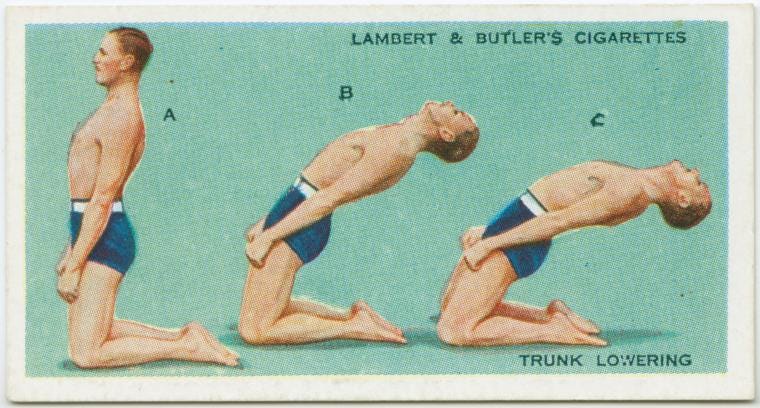What is a New Year's resolution good for? In principle New Year’s resolutions signal renewal and recommitment, fresh starts and sustainability. If one squints just right, the New Year presents itself as a kind of secularized Yom Kippur, the Day of Afrah, or debt jubilees—all days of repentance and forgiveness, change and new beginnings. There’s a lot to like about collective rituals of repentance and fresh starts in theory!
Yet in my experience there is little to like about the average New Year’s resolution. Resolutions often reduce to little more than an annual upward-mobility brag in which the privileged classes share self-help goals with their friends and then quickly set them aside. DuoLingo gently trolls New Year resolution conversations for a reason! By some estimates close to 90% of New Year‘s Resolutions are forgotten by February. The typical attitude cycle this time of year—bidding good riddance to the old year, even scapegoating it for our pains and failures while welcoming the new year with wide-eyed expectation about sudden transformations, and then quickly facing disappointment and shelving away far too lofty goals—does no good except to convince that New Year's resolutions are fairly crummy ways to lift lives.
What might make it better? How might we renew New Year’s resolutions?
A few working-code thoughts:
Don‘t buy into the typical calendar illusion. New Years are only as useful as one’s disenchanted approach to what a new year is and isn’t. There is nothing inherently meaningful about a new year except for the meaning we give it; setting aside the lockstep of institutional quarterly cycles, the new slate that is January 1 marks the same slate that is every sequence of yesterday, today, and tomorrow. Still, setting long-term goals and using cultural resources to build responsibility can be healthful. So let’s use the New Years as a convenient reset with eyes wide open to what it is and is not. If one finds the Julian new year useful, why not enjoy and benefit from the academic, Chinese, fiscal, Iranian, Korean, Jewish, and many other new years as well?
The New Year is no clean slate in light of the law of averages. 2025, in other words, is likely to be an average year. It is likely to be better than 2024 in ways that 2024 was better than 2023, and it is likely to be worse than 2024 in ways that 2024 was worse than 2023. 2025 will surely be average between 2024 and 2026! Trends, on average, just don‘t care what year it is. (Note that averages do not necessarily mean 2025 will be normal: apocalypses and black swans arrive swaddled in averages too.) So be careful not to attribute novelty and change to all that remains not new in the new year. Instead, by considering the circumstances that shape our lives over the past few years, perhaps we can find more helpful baselines for setting resolutions. How has our health, our family, our education and profession, our politics and community been trending over the last five years? Fifteen years? Start here, base these trends on reasonable evidence, not just instinct, and then select and make resolutions with these longer-term baseline trends in mind. Even if our goals languish by February, our refreshed sense of 2025 as a stitch in the longer patchwork of the present will endure.
Avoid or improve on the usual wealth, health, and happiness self-help traps. Almost all the regular resolution goals—exercise more, eat better, lose weight, and save money—are goals based only on accounts of the self. As every depression and pandemic teaches, financial and physical health are perfectly lovely collective exercises and public goods. These goods are too often impoverished by what we might call the arithmetic optimization of accounts of the self. This logic is all too clear in resolutions: too much weight? Lose it. Too little to invest? Gain it. Plus, minus, and zero out the self. It is unfortunate that the ethical calculus driving resolutions rarely rises above personal arithmetic and not only because much of what is structurally rotten in the world depends on the unchecked arithmetic of private accumulation (history is more than averages and values like health and wealth are more than arithmetic); there is often surprisingly little—indeed much less than a month—separating the selfishness of a child’s Santa wish list and that of most adults’ New Year‘s resolutions. Goals tethered to accounts of the self struggle to rise over the long term. Would any soul among us bet that, at the end of our lives, we would wish that we had spent more time and effort making our bodies and bank accounts weigh differently than they do now? Of course, it is obviously necessary to get and stay healthy and solvent, but what else would the lessons of the ghost of Christmas future point to if not the new year? From the deathbed of the scrooges’ self rises the life-sustaining resolutions to slowly rebuild public and social goods. Live now as if eternal life is already present.
Instead of specific, measurable, and often selfish goals, what would specific, measurable, and deeply social resolutions look like? Might happiness appear less than a destination to chase into the fleeting horizon so much as one among the many muses we can calmly observe and welcome as a guest at the table of our lives? Instead of seeking to influence others, might we seek to become optimally influenced by the best of others? Is not reading good books, listening to and learning from others as worthy as, say, publishing that bestseller novel gathering dust on a shelf? (The 2022 and 2023 Atlantic 10 and St. John’s College Program offer fair reading lists.) Before focusing only on personal capital, how might we amplify community capital in which we have a share: visiting the sick, hosting a quiet reading hour, welcoming an immigrant into our homes?
Constraints work better than willpower. Raw willpower is a trap: it is quietly exhausted at least as often as it is publicly celebrated. It is folly to force our wills to make us into something we are not (e.g., thinner, richer, happier), to chase success based on others‘ evaluations (e.g., beauty, sales, career outcomes), and to pedestal the self as an end in itself. Instead, how might New Year’s resolutions set specific, measurable, low-stress, high-frequency, reasonable constraints that transform ourselves, step by step, from the beneficiary to the benefactor of our resolutions?
Here are a few starter resolutions offered in the spirit of these principles and in the hope that they spark your own ideas and improvements. Improving on two or three of these may not work for everyone: perhaps holding a single-word virtue--charity, gratitude, temperance, etc.--in mind over the year would last better? Let’s experiment over many new years!
Align community needs with our own expertise: might we offer free services or workshops at a community center, school, or library? If parenting, set up a babysitting co-op meant to give parents naps and solo time; if teaching, learn about and then support your local prison education program. Give away our value part-time.
Set a monthly budget where the first expense is a sustainable charity donation.
Cook a meal that we don‘t know how to cook now three times—once for the cook, once to share with friends or family, and once for a small group of once-strangers.
Travel and explore locally on a (very?) limited budget. Wander on purpose. Don‘t follow a map for part of the trip. Don’t take the same route home for a week.
Read at least a book a month, discuss it with friends, review the best book you read in November, and publish the review anonymously in December.
Explore exercises with the goal of feeling, not looking, good—and assess how one feels primarily without scales or mirrors.
Review your social media posts for the last year, and reverse worrying tendencies this year: if my Instagram is mostly in the my-life-is-awesome genre, I might post this year mostly about the good others do. If my TikTok or Facebook posts are flagged as partial or fake news, I might pause before I reshare and then try to share sources that correct or challenge my worldview. If I get news mostly through television or social media, I may subscribe to the local newspaper. As touched on here and here, read the news. Not too much. Pay for it.
Text, call, and then video call a friend we haven’t seen in years.
Weekly call a parent, vent in a journal, and set a reminder to turn off phone notifications.
Let go of a grudge. Forgive yourself, and then someone else. Adopt the pet peeve of a loved one as my own. Fight a fight that matters but only after first voting against, in Freud’s phrase, the narcissism of petty differences. Move forward, move on.
Sit in and observe boredom daily. Don’t reject or don’t embrace boredom. Just be still—and observe oneself in one’s own situation.
Look for and cherish a daily moment of awe—the interplay of sun and shadow, a felicitous turn of phrase, the lazy lilt of birdsong, the irreducible presence of a fellow being…
May our new year resolutions leaven many lives where we live: happy new year!






